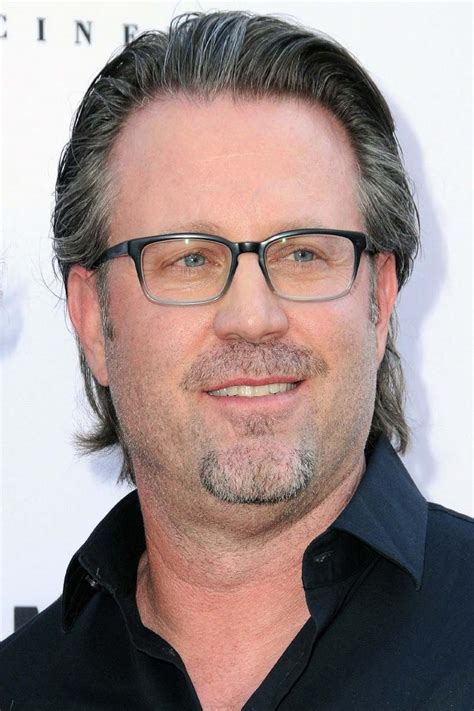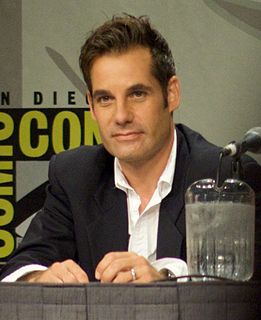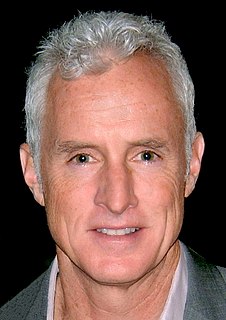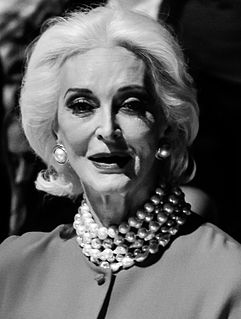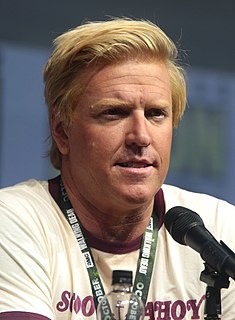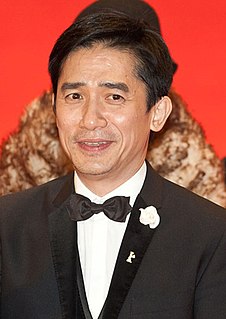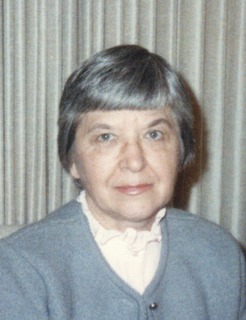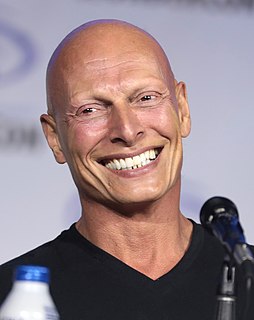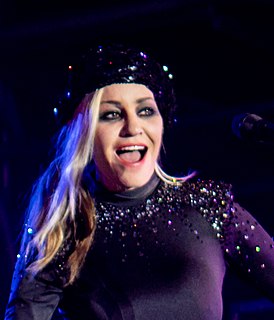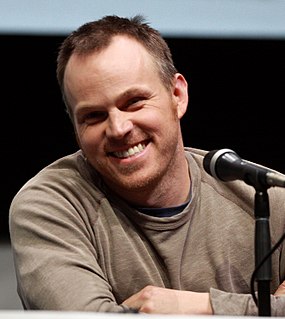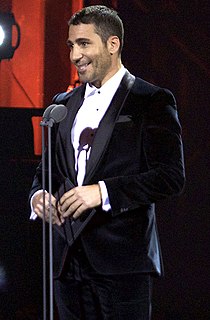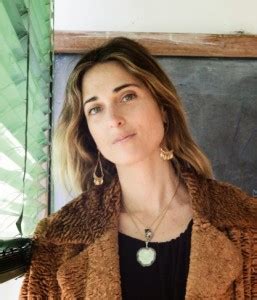A Quote by Ric Roman Waugh
I had a very blessed journey with the upbringing I had. When you're working on sets as a stuntman, you have a firsthand account of the dynamics between actors and directors, because you're working hand in hand with them. You're not sitting outside the process watching. You become part of the process. You also see your tradecraft and see how movies are made.
Related Quotes
I'm totally formed by my mother's interest in fashion. As a Hungarian immigrant, she couldn't afford clothes. She made all her clothes from patterns. It was not dépassé to make your own clothes, it was a respected skill and it was financially expedient. I learned that doing it yourself, having self-discipline and working went hand in hand. To work passionately at something is the key. I'm fortunate and blessed to have had, for the most part in my life, the privilege to work at something I'm passionate about.
I was working with these very long-chain ... extended-chain polymers, where you had a lot of benzene rings in them. ... Transforming a polymer solution from a liquid to a fiber requires a process called spinning. ... We spun it and it spun beautifully. It [Kevlar] was very strong and very stiff-unlike anything we had made before. I knew that I had made a discovery. I didn't shout "Eureka!" but I was very excited, as was the whole laboratory excited, and management was excited, because we were looking for something new. Something different. And this was it.
I generally enjoy the rehearsal process because that's where you can share your ideas, get your thoughts and feelings out and see whether or not they're going to land, whether or not people are going to agree with them, particularly the director. So you can sort out in that process any elements that need to be sorted out before you're on the set, and of course that saves time and it also makes everyone more comfortable working together.
My favorite part about working in theater is the rehearsal process. I absolutely love the rehearsal process. Working out the characters, figuring the character out, and the relationships between the different characters. I love all of that, which, unfortunately in film, you get very little opportunity to have.
When I was a little bitty kid, my aunt showed me how to play a little boogie. It took me years. I had to play the left-hand part with two hands, because my hands was so little. Then as I grew up and I learned how to play the left-hand part with one hand, she showed me how to play the right-hand part, and et cetera. My Uncle Joe showed me how to play a little bit different boogie stuff. I had people in my family that was professional musicians, but I just wasn't interested in what they did. I wasn't very open-minded to a lot of music that I'd be more open to today.
You always have to speak good about the projects you do and you have to see the beauty in them. Sometimes you see them and you're happy with things, or maybe the process was nice and you enjoyed it, and you were happy with that. But when everything gathers - you liked the scripts from the very beginning, the directors, your friends - but then you see the result and you like it - it's beautiful.
For me, filmmaking is an ongoing self-reflection process. I kind of push everything to the edge. I feel very exposed and fragile when I make a film. It's a process of dealing with loneliness. And it's also very dramatic - because while you are working on a film, you just realize how incapable you are of dealing with all these things. And you open yourself up, and it's like your heart is utterly exposed. And it's very tiring on a daily basis.
Screenwriting involves an often un-personal process. Co-writers, directors, producers, everyone has a say in what you put on a page, and stories are constantly changing according to budget, actors, and commercial needs. Films are a collaborative process and are also inherently narrative and structured, so you are always working within very tight parameters. Short fiction unleashes a more intimate voice and a passion for language. I believe short narratives can have the same amount of danger and drama as any action film.
